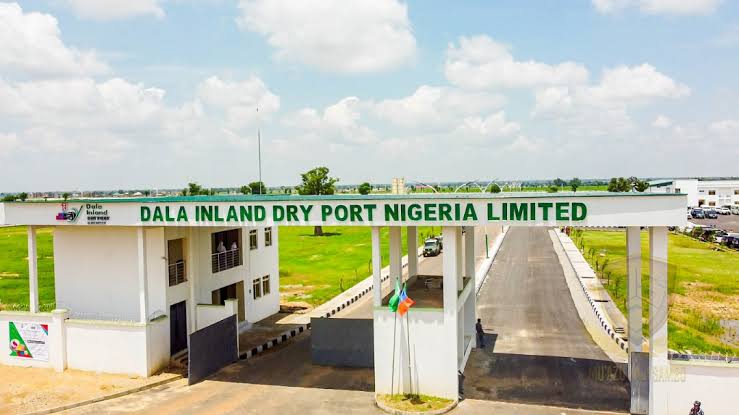
Despite multi billion naira investments, the two Inland Dry Ports (IDPs) which have been showcased as success stories have been abandoned and have received no container from Lagos ports since the beginning of the year.
Findings by Shipping Position Daily have revealed that the Kaduna Inland Dry Port and the Dala Dry Port that were designated as ports of destination and ports of loading have not received any container from the Lagos ports since January, 2024.
The IDPs are supposed to receive containers from Lagos ports, for delivery to consignees in the hinterland. But this has not happened, especially in the first quarter of 2024.
According to data obtained by our correspondent from the Nigeria Railway Corporation (NRC), a total of 127,933 metric tonnes of containers were moved from the Lagos Port to the hinterland during Q1 2024, but none of these containers made it to the Inland Dry Ports.
According to the NRC, In January, 47,315 metric tonnes of containers were moved by rail, with 20,335 tonnes through the standard gauge and 26,960 tonnes through the narrow gauge.
Similarly, in February, 40,335 metric tonnes of containers were moved, with 24,335 tonnes through the standard gauge and 16,000 tonnes through the narrow gauge.
And in March, 40,283 metric tonnes of containers were moved, with 25,843 tonnes through the standard gauge and 14,440 tonnes through the narrow gauge.
Reacting to this development, the Managing Director of Kaduna Inland Dry Port (KIDP), Mr. Raheem, attributed the decline in container receipt to a 40% drop in importation since the last quarter of 2023, as reported by the Nigerian Bureau of Statistics in October.
He also cited challenges such as foreign exchange instability, inconsistent high rates of import duty by customs authorities, and lack of locomotives and wagons to evacuate laden containers to the Kaduna Inland Dry Port terminal and return with goods for export.
He said, “generally importation has dropped by 40% since the early last quarter of 2023 based on the Nigerian Bureau of Statistics report. And it is a general challenge of foreign exchange instability and inconsistent high rate of import duty by Customs authority and lack of providing locomotives and wagons to evaluate laden containers to Kaduna inland dry port terminal and return back with export goods” he stated.
Officials of the Nigerian Railway Corporation who spoke on condition of anonymity confirmed that the IDPs were not ‘fed’ any container since the beginning of this year. They did not give reasons for this.
Findings at both the Kaduna Inland Dry Port and the Dala Inland Dry Port revealed the state of abandonment and deprivation, largely by the NRC, which is supposed to transport containers from Lagos to the two facilities.
Recall that the IDPs were designed to function as hinterland equivalents of seaports, strategically located to receive containers by rail or road from seaports for customs examination and clearance, among other authorized operations. However, a pattern of challenges has impeded their operations, despite Federal Executive Council (FEC) approval granted about 18 years ago for their establishment.
The FEC had granted approval for the establishment of Inland Dry Ports in March 2006, initially at six locations across the country. However, Kaduna Inland Dry Port Limited, which was not part of the original six approved in 2006, was commissioned by the Federal Government in 2018 as the first port of origin for exports and the port of destination for imports for hinterland and landlocked neighboring countries without sea ports, such as Niger Republic and Chad.
Checks by our correspondent revealed that the IDPs face varying challenges. For instance, the Ibadan Inland Dry Port faces paucity of funds, political interference, and land compensation issues, which have hindered construction and equipment procurement. The IDP proposed for Isiala-Ngwa in Abia state faces infrastructure deficiencies, including inadequate road networks and power supply, along with regulatory hurdles and land acquisition disputes. Data from the Nigerian Shippers’ Council indicates that the dry port is only at a 5% completion stage.
In the case of the IDP in Heipang, Jos, security concerns in the region have raised safety issues for cargo and personnel, leading to increased project expenses and delays. The port is currently at 48% completion.
Although the Dala Inland Dry Port in Kano has been completed and declared as a ‘port of origin and destination’, regulatory bottlenecks and inadequate infrastructure have hampered its development, leading to delays in its operations.















